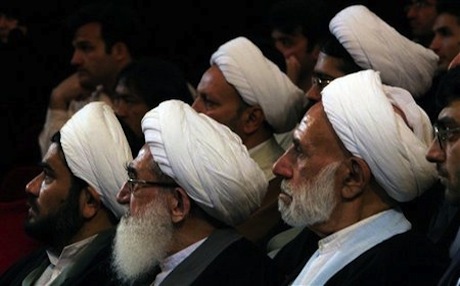
Editor’s Note:
The following piece was first published in Middle East Briefing (ISSUE 9 VOL 1 Jan 13th 2014), a weekly publication of Orient Advisory Group, a research and risk assessment firm based in both Washington DC and Dubai UAE.
__________________________________________________________________
Quiet changes have already been made in the team of Iran’s negotiators with the P5+1 on orders of Supreme Leader Ali Khamenei. A faction of Iranian hard-line Majlis members, allied with former President Ahmadinejad and the Iranian Revolutionary Guard Corps have taken a series of behind-the-scenes moves, aimed at limiting President Hassan Rouhani and Foreign Minister Javad Zarif’s ability to complete implementation of the interim agreement with the P5+1.
A group of Majlis members recently made a direct appeal to Supreme Leader Ali Khamenei to permit the creation of a Majlis oversight group, to supervise and approve all negotiations being conducted with the P5+1. The move was discovered by President Rouhani and by powerful cleric and former president Rafsanjani. When the two men, along with Foreign Minister Zarif attempted to get a direct clarification from the office of Khamenei, they received no clear reply. And subsequently, on January 7, Deputy Foreign Minister Seyed Abbas Araqchi officially told Iranian news agencies that he has no knowledge of any new Majlis oversight body, and that he and the other negotiators have been and will continue to report directly to the Supreme National Security Council. However, there were official acknowledgements that there will be new members on the negotiating team, as yet unnamed.
The pressure for a more hard-line stance in the negotiations with the P5+1 on detailed implementation of the interim agreement reached in November 2013 has already been reflected in a slowing down of work on the details of the interim plan. Iranian negotiators have been pouring over every word in the document, to refine exactly how the P5+1 and IAEA inspections will be carried out. Despite this, Araqchi announced on January 7 that the implementation details had been all-but-completed and that the inspections and limited sanctions lifting will be implemented before the end of January.
Despite these reassurances, Western intelligence agencies are awaiting the identification of the new negotiators. According to U.S. officials, Supreme Leader Khamenei is definitely feeling the pressure from the Principalist faction of hard-line clerics, who were soundly defeated in last year’s presidential elections. They fear even further slippage in next year’s parliamentary elections, and are making a move now to disrupt and discredit Rouhani and his chief backer Rafsanjani.
The offensive against the hardliners is not only internal to Iran, but officials from the Ahmadinejad era are operating internationally to criticize both the deal and the deal-makers. “If some people have had a simplistic attitude vis-a-vis the nuclear issue and believe that being passive will bring about an agreement, they are seriously mistaken,” said Fereydoun Abbasi-Davani, who served as head of Iran’s Atomic Energy Organization under Ahmadinejad, and who had survived a car bomb assassination attempt in 2010 in the spate of attacks that killed Iranian nuclear scientists and professors. His remarks were also aimed, indirectly, at Rouhani himself.
“In reality, there is nothing else left for us to give in order to get something from the West,” Abbasi-Davani said. “We have shut down the Arak reactor, we have stopped enrichment of 20 percent uranium purity, enrichment has been reduced to less than 5 percent, and we have become vulnerable. We are not allowed to increase the number of our centrifuges and the new generation of centrifuges cannot be installed. The next stop is probably for us to stop 5-percent enrichment.”
On January 8, a group of 100 Majlis members, led by Seyyed Mehdi Mousavinejad, introduced a bill that would mandate 60 percent enrichment in the event of any increase in Western sanctions or other actions against Iran. The bill would mandate the completion of the plutonium enrichment heavy water reactor at Arak and expanded work at Fordo and Natanz, ostensibly to produce 60 percent enriched fuel for Iran’s fleet of nuclear submarines.